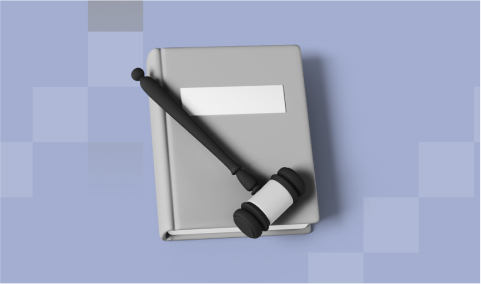
How to Simplify Payroll Calculation in a Construction Company in the UAE
Unfortunately, construction industry payroll is notoriously complex. In the UAE, construction companies face even more challenges. These include complicated salary structures, calculating fluctuating work hours, and sticking to overtime regulations. Fortunately, an automated payroll system that simplifies payroll calculations can help your business comply with WPS rules and avoid penalties. [?]
This article explains how simplifying payroll calculations can help you overcome the challenges you may experience when processing payroll for construction workers. It will also give you the information you need to effectively run a construction payroll in the UAE.
What to Remember About Running Payroll in a UAE Construction Company?
Moreover, the UAE government revises labor laws regularly. This will result in chaos if a construction company’s HR department is not on top of these changes.
Your UAE construction company must also comply with the country’s Wage Protection System (WPS).

What Is Payroll Processing in Construction?
Payroll Cycles and Payment Frequencies
Most trade sectors in the UAE, including construction, prefer weekly payrolls. If you have several hourly-paid workers, it is easier to calculate weekly payments.

Semi-monthly payroll cycles are often easier to calculate and allow paychecks to be distributed on either the 1st and 15th or the 15th and 30th of each month. These dates will not always fall on the same day of the week, so the pay periods often increase from 24 to 26 each year.
If you choose a semi-monthly payroll cycle, paydays that fall on weekends will move to the Monday either before or after the weekend.
Monthly payment cycles are not ideal for a small business or startup. Instead, they are ideal for contract or freelance workers. Monthly payroll cycles are also more heavily regulated than other payment cycles.
Payroll Components
Overview of the UAE Labor Laws Governing Payroll
The Federal Law No. 8 of 1980 provides general regulations and guidelines, but specific rules are also in place for the construction industry.
These provisions include the following:
Furthermore, the law states you must pay your employees’ wages in the UAE’s official currency. You also cannot withhold any part of an employee’s wages without a legal order. Moreover, give wages by the 14th of each month or pay penalties.
According to federal law guidelines, employers must subtract all deductions. Employees are also entitled to an end-of-service pay based on length of service.
To ensure you are in line with construction payroll guidelines in the UAE, your HR manager should stay updated with the latest amendments to the labor laws.
Common Challenges in Construction Payroll
Managing Diverse Workforce Classifications
Running a construction payroll for all these classified workers means calculating wage rates and overtime eligibility. It also means working out each worker’s benefits.

Ensuring Compliance With Labor Laws
If the news of your company’s non-compliance spreads, it can deter potential clients from supporting you or even top talent from seeking work in your business.
In serious cases, non-compliance leads to legal action, while repeated regulatory breaches results in your business being blacklisted (revoked trading license) by industry bodies.
Handling Allowances and Overtime Calculations
Strategies for Simplifying Payroll Calculations
There are several ways you can implement a simplified and streamlined payroll process. These include the following strategies.
Go Paperless

With digital record keeping, you can benefit from cloud storage, which makes your information more secure and easily accessible from anywhere. Paperless payroll streamlines data entry and instantly improves accuracy, by eliminating manual data processes.
When your business goes paperless, you also reduce the risk of human error while enabling instant calculations and checks.
Outsource Payroll Activities
This will alleviate the burden of overseeing or managing a process you may not fully understand. It also ensures compliance with labor laws and reduces the risk of expensive errors. Outsourcing payroll will also free your office staff to focus on other core business activities.
Additionally, most payroll service providers offer features like employee self-service portals, adding more automation to the payroll process.
Automate Payroll Systems
You will also get time and attendance tracking features if you choose an advanced payroll system. The system can also manage your business expenses (related to payroll) and set up a self-service portal for your employees.

Involve Employees in the Payroll Processes
Encourage your employees to report discrepancies so you can correct them quickly. Self-service portals also make a huge difference here. If your employees can access their pay slips by logging into a portal, they will discover errors faster.
With the FirstBit ERP payroll software solution, you can easily implement a self-service portal where your employees can access more than just their pay slips. They can update their personal details, check whether their leave days have been calculated correctly, and stay updated on the status of their company loans.
Classify Workers Properly
For example, if you misclassify your employees as independent contractors, it becomes a legal and ethical issue. Your employees work under your supervision, while independent contractors are allowed to follow their own processes.
Employees in your business have benefits like paid leave and overtime, while independent contractors typically do not. It is also your responsibility to ensure that your payroll process includes tax deductions for your employees while independent contractors calculate their own taxes.
If you are unsure of where to start when classifying your workers, get legal advice. A legal professional can also help you clarify ambiguous classifications.
Update Your Construction Business’s Payroll System
Important updates also include incorporating new technologies to improve the efficiency of your payroll software. Ideally, you want to increase data security and improve cloud integration periodically.
Your software updates should also include bug fixes, such as patches, to prevent errors that may disrupt the payroll process. Keeping your payroll system updated helps maintain the software’s stability over a longer period.
If your current system does not allow for critical updates, it may be time for an upgrade. You can choose from excellent automated payroll systems designed specifically for the construction industry.
Ensure Compliance and Accuracy
Conduct internal audits regularly to assess the accuracy of your payroll. This will allow you to identify areas for improvement. If you have a payroll department, ensure they are trained in the laws and regulations that pertain to construction. Also, implement internal controls to enhance the security of your payroll process.

Develop detailed manuals for all payroll processes, including a step-by-step guide for payments. The manuals should also include a formal approval process before any payments are made. It is also crucial to train your employees to recognize and report any potentially fraudulent activity.
Following these steps will help protect your business and build trust with your workforce.
Choosing the Right Construction Payroll Software
Other features to look for include:
For example, if you have a large workforce with several wage structures and employment contracts, you need a software system that calculates on different levels. You also need a system that accurately tracks time and attendance while ensuring your payroll complies with UAE requirements and regulations.
Most importantly, you must choose a reputable payroll software provider. While researching software providers, make a point of reading customer reviews and testimonials.
This will give you a solid idea of the quality of the provider’s products and services. Also, test how easy it is to contact the provider’s customer service team. If you can reach them without having to jump through a lot of hoops, it is a good sign that the team will assist you with after-sale queries.
Most software providers offer basic features for outsourced payroll functions. What you want is a provider that goes above and beyond, especially if your business is a startup.
Simplifying Construction Payroll Calculations with FirstBit ERP
FirstBit software allows you to manage your employees and optimize your HR operations. You can deploy the system on-premises or use the cloud version. When you invest in the FirstBit ERP software system, you can integrate it with your existing HR systems and immediately enhance your business’s overall efficiency.
FAQs
1. How Can I Prevent Payroll Errors?
2. What method of payroll accounting is best for a construction company in the UAE?
3. Are payslips mandatory in the UAE?
4. What is the payroll tax in the UAE?
of your processes and scale your business with FirstBit ERP now!











